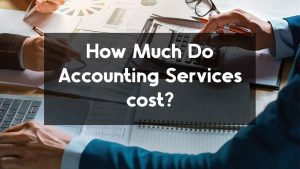Accounting is among the most important tasks of almost any company. This can be done by a bookkeeper or accountant in a small company, or by accounting firms that have large divisions for finance with hundreds of staff in a bigger business.
The reports produced by various accounting sources, such as cost accounting and managerial accounting, are invaluable in helping managers make informed business decisions.
There are 6 types of accounting
Lets discuss each types of accounting in detail.
Financial accounting
Each year, the firm develops financial statements that individuals other than your firm can use it for learning more about your firms ‘ financial health, such as creditors, lenders, government agencies, auditors, prospective purchasers, etc.
This way, the preparation of the firm’s annual financial statements is called financial accounting.
Managerial accounting
Managerial accounting is closely related to financial accounting, with two main exceptions.
- They are mostly made of internal use
- They are created more frequently like quarterly or monthly
If your company expands to an extent that you need to employ a full-time accountant, managerial accounting may occupy much of their time.
You will pay them to generate the report which provides daily updates mostly on the financial health of the organization and help you interpret such reports.
Tax accounting
If the accountant gives you tips on how to get the best from your tax return, that is indeed tax accounting.
Internal Revenue Service ( IRS) regulates tax accounting, and the IRS legally necessitates your tax accountant to adhere to the Internal Revenue Code ( IRC).
Tax accounting is mostly about ensuring you ‘re not paying more in taxes than IRS legally requires.
Cost accounting
If you want to find out how to maximize your margin, you do cost accounting, or to determine if it’s a sensible move to raise prices.
Cost accounting includes evaluating all of the expenses involved with generating an item (if it’s a tangible product or service) to create good pricing, investment, and inventory decisions.
Cost accounting integrates into managerial accounting since managers use cost accounting information to make informed decisions, but it also feeds into financial accounting, as costing data is also needed when preparing a balance sheet.
Credit accounting
Credit accounting includes reviewing all of the unpaid bills and liabilities of a company and ensuring that perhaps the money of a firm is not constantly obliged to pay for them.
The credit accounting system can be one of the toughest types of accounts to do correctly, as it always requires telling someone something they might not want to know (such as the accountant saying the firm that less loan should be borrowed).



